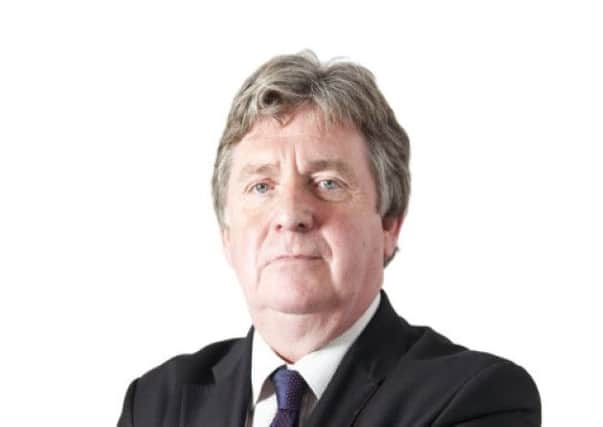Comment: Lloyds chief Horta–Osorio hails recovery


The group has made its first pre-tax profit (£415 million) in three years, is growing all its core businesses, from mortgages to small business lending, and expects to be paying dividends by the second half of this year.
Chief executive Antonio Horta-Osorio was holding a few picture cards yesterday to back his claim that Lloyds, a more streamlined and risk-averse operator these days, with a much reduced global footprint, was back to normality.
Advertisement
Hide AdAdvertisement
Hide AdAndrew Tyrie, chairman of the Treasury select committee, publicly questioned whether this was correct, given that the bank is still having to put aside billions of pounds for mis-selling controversies such as payment protection insurance (PPI).
Tyrie also said Lloyds would only be fully recovered when the government sells down the remaining 33 per cent taxpayer stake in the bank.
But there looks little in yesterday’s full-year trading figures for Lloyds to stop a very orderly sale of that residual holding by the Treasury and UK Financial Investments in one, more probably two, tranches later this year. Recently flagging up to institutional and retail shareholders that the strong underlying earnings mean dividends could be restored after a six-year gap will also not harm Lloyds’ sale of shares.
Horta-Osorio wants Lloyds to be “boring” again, as in reliable, stable, shock-averse. And he is not alone in the financial community in wanting that after the never-ending rollercoaster ride for the sector since the banking crisis.
Martin Gilbert, chief executive of Aberdeen Asset Management, told a London conference yesterday that investors want banks to be “boring”.
“It’s absolutely vital that banks get back to being these boring models that they were in the late 90s, early 2000s,” Gilbert said, highlighting Lloyds as “the UK bank that is going most towards that model”.
Lloyds is virtually a complete play on the UK economy, with massive market shares in mortgages and current accounts. The Bank of England’s forecast of UK economic growth of 3.4 per cent for 2014 is also a powerful tailwind for the bank.
Crucially, Lloyds has no investment banking business to speak of, which many investors think is no bad thing. Investment bankers are stars in the good times, bringing in lumpy profits.
Advertisement
Hide AdAdvertisement
Hide AdBut they can also eat money for little returns in the bad times, are a lightning rod for bonuses’ uproar, and some of the more egregious examples of banking misbehaviour, such as Libor-fixing, can be laid at their door.
Ross McEwan at Royal Bank of Scotland, Paul Pester at TSB (soon to be floated off by Lloyds), Ana Botin at Santander, Horta-Osorio, even raffish Co-operative Bank, are all now extolling the virtues of business simplicity and customer focus. Let’s hope it catches on.
Sweet & sour from China for Tate & Lyle
A PROFITS warning from Tate & Lyle saw the sweetener maker’s shares crash 16 per cent yesterday. Its problem is a glut of cheaper generic rivals to its Splenda sugar substitute.
Developed markets are also weak due to lower fizzy drinks sales. One wonders whether an active Chinese private equity market might see the depressed share price of T&L as an opportunity to simplify the sweetener industry’s landscape.